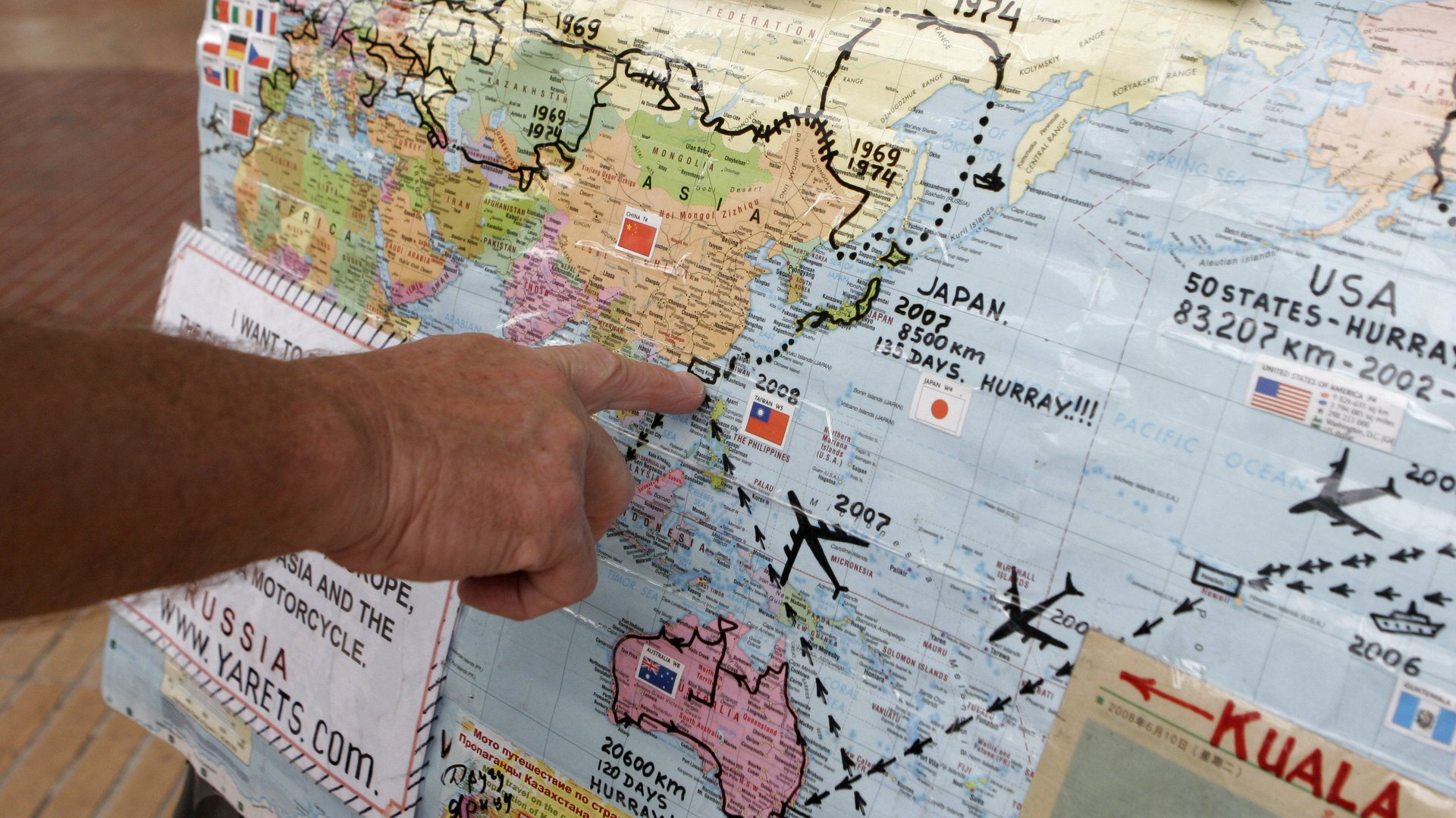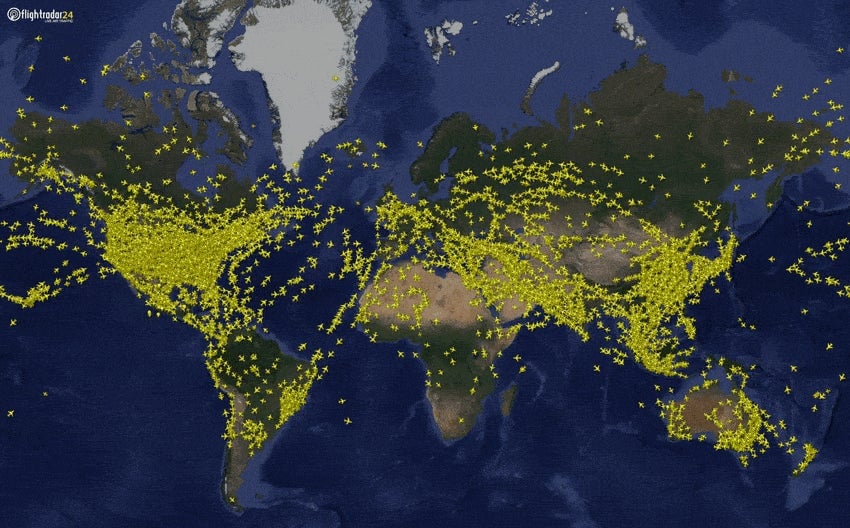The addictive allure of travel booking sites
Delhi for £321 on Feb. 1? Or maybe Taipei for £470, which leaves on the same day? Or wait—for a little bit more I can go to Bangkok for two nights on the 3rd.


Delhi for £321 on Feb. 1? Or maybe Taipei for £470, which leaves on the same day? Or wait—for a little bit more I can go to Bangkok for two nights on the 3rd.
In truth, I am not going to travel to any of these places in February. But here I am, at my desk, running my cursor over the Skyscanner’s flight comparison map, and imagining what might occur if I did fly somewhere, sometime in that month.
It’s a strange hobby, I must admit. I’m not a meticulous travel-planner. I hardly ever research the restaurants or galleries I plan to visit in a given destination before going, and I regularly put less discernment into choosing my accommodation than I should. But when it comes to the odd pastime of simulating the mechanics of booking a trip, or even watching a trip in progress, I know I’m not alone.
A rep from Skyscanner tells me that its “Everywhere Search” tool is one of the most popular features, but that’s not the only way to simulate the thrill of going somewhere. One can also browse Airfarewatchdog’s “Fares From a City” tool, which lets you select a destination based on what’s cheapest.
Or there’s FlightRadar24, where you can watch aircrafts glide across your screen and ponder whether you’d choose the chicken or beef on that Emirates flight currently midway over the Indian Ocean on its way to Melbourne. (My own father, who uses this website as a kind of meditative exercise, has been known to alert me that my flight is delayed before the airline does.) For the rebels among us, there is Skiplagged, where you can scheme how to get to your chosen destination cheaper by booking it as a part of a connecting journey that you wouldn’t (hypothetically) take the next leg of.

If, as the modern philosopher Alain de Botton once wrote, “journeys are the midwives of thought,” then planning journeys are the progenitors of something else altogether. For me, this internet-enabled daydream brings the kind of mood-elevating, joyful anticipation that is associated with travel, but is not bogged down by the realities of it.
This points at a curious truth not frequently discussed: Travel often isn’t all it’s cracked up to be. Elizabeth Gilbert, author of Eat Pray Love, once said that travel is “mostly boring”:
“Travel—it’s amazing, the most fascinating thing you can do with your time—but 90% of it: mostly boring. Anyone who’s ever travelled knows that for a huge part of it, you’d rather be home. Or you’re in another airport, or you’re alone in a city for a fifth night and there’s nothing to do, and you don’t know anybody, and you’re wondering why you bothered to come here and it’s expensive. And then there’s that one transcendent thing that will happen on that trip that could only have happened if you had gone through the trouble to drag yourself to Yugoslavia. There’s a reason you came, this is the reason you came, it’s totally worth it.”
To me, the addictive allure of travel booking sites points to something profound about the “why?” behind travel. It’s not just to amass high-performing Instagram content or to gather travel anecdotes to be deployed at dinner parties. Research shows us that much of the enjoyment we get from travel comes from the anticipation (paywall) of the event, not the event itself.
And indeed for me, my desk-bound daydreaming is motivated by the sense of freedom that comes when I know, in just a few hours, with just a few clicks, I could hop on the tube to Heathrow and go just about anywhere to do just about anything, all by myself. I’m just choosing not to—for now.